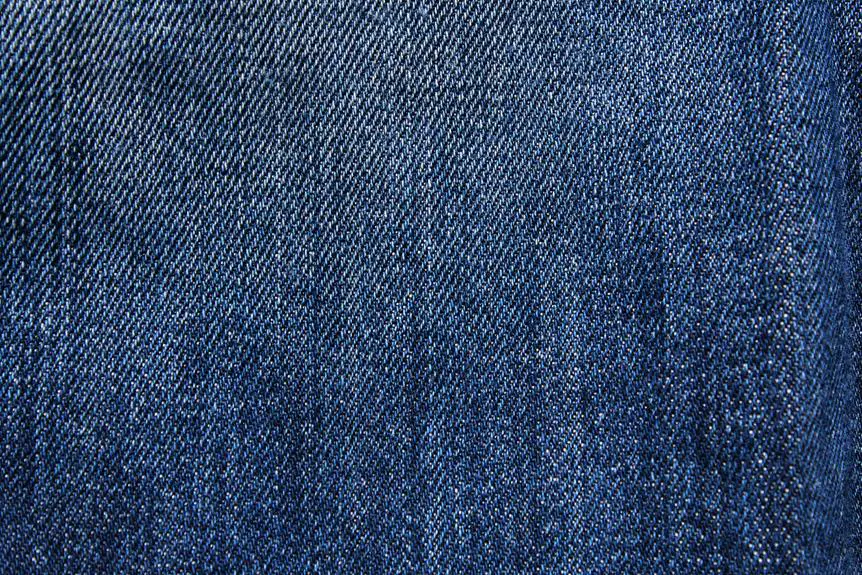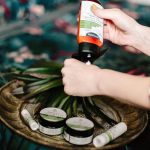When you compare the feel of ring spun cotton to modal, you're stepping into a realm of comfort and texture that can significantly influence your clothing choices. Ring spun cotton gives you that classic softness and durability, perfect for everyday wear, while modal offers a smooth, luxurious touch that many find delightful against the skin. But how do these differences really impact the overall experience? You might be surprised by what else these fabrics bring to the table, especially when it comes to breathability and suitable applications for different lifestyles.
Table of Contents
Overview of Ring Spun Cotton
Ring spun cotton is a type of cotton yarn that's made by twisting and thinning the fibers, resulting in a stronger and softer fabric. This process makes it ideal for creating comfortable clothing that feels good against your skin. When you wear garments made from ring spun cotton, you'll likely notice how breathable and lightweight it is.
The twist in the fibers gives the fabric a distinct texture, making it not only durable but also versatile in its applications. You might find it in everything from t-shirts to bed linens or even activewear. The softness of ring spun cotton can be attributed to the higher-quality fibers used, which are usually longer and more aligned than those found in regular cotton.
In your quest for comfort, you'll appreciate that this cotton type resists pilling, ensuring that your clothes maintain their fresh appearance over time. Moreover, ring spun cotton has a natural stretch to it, contributing to its fit and flexibility.
Overview of Modal
Modal is a type of rayon made from beech tree fibers, known for its luxurious feel and breathability.
When you wear modal, you'll notice its exceptional softness and comfort, making it an ideal choice for various garments.
Understanding its fabric composition and properties helps you appreciate what modal brings to your wardrobe.
Fabric Composition and Properties
When you explore the properties of modal, you'll find it's a soft, breathable fabric made from beech tree fibers that offers excellent moisture-wicking capabilities. This eco-friendly textile has gained popularity due to its sustainability and comfort.
The manufacturing process of modal involves dissolving wood pulp to create a viscous solution, which is then extruded into fibers. This results in a fabric that's not only lightweight but also drapes beautifully.
Modal's structure gives it a silky feel, making it ideal for garments that cling without feeling restrictive. It resists wrinkling, retains shape, and maintains vibrant colors, which means your clothing looks fresh and new longer.
Another appealing property is its biodegradability; since it's derived from natural sources, it breaks down more quickly than synthetic fabrics.
Furthermore, modal is known for its durability. It withstands multiple washes without sacrificing quality, making it a practical choice for everyday wear.
If you're looking for a fabric that combines comfort and performance, modal stands out as a viable option worth considering in your wardrobe.
Softness and Comfort Levels
You'll instantly notice that modal boasts a luxurious softness that makes it a favorite for those seeking maximum comfort in their clothing. This fabric is made from beech tree pulp, which undergoes an environmentally friendly process to create silky fibers. As you slip into modal garments, you'll appreciate how they gently caress your skin.
Here are some key comfort factors to consider:
- Breathability: Modal allows air circulation, keeping you cool and dry, even in warm environments.
- Moisture-wicking: It absorbs moisture away from your skin, ensuring you feel fresh throughout the day.
- Smooth finish: The fiber's silky texture reduces friction, making modal less irritating than other fabrics.
When you wear modal, you'll find it's not just about aesthetics; it's about how it feels. This blend of softness and functionality can elevate your everyday wardrobe, making each moment more enjoyable.
Softness and Comfort Comparison
Ring spun cotton delivers a soft, breathable feel that many find more comfortable than modal's silky texture. When you wear ring spun cotton, you'll notice its slightly textured finish that gives it a cozy, inviting sensation against your skin. This texture can create a sense of warmth, making it a favorite for casual wear and loungewear.
On the other hand, modal offers a smooth, luxurious feel that you might enjoy for slightly dressier occasions or when you want a more refined appearance. While modal drapes beautifully and feels amazing, some people might find it less cozy for everyday use.
Consider your preferences. If you love that familiar, relaxed vibe, ring spun cotton is likely your go-to choice. But if you prioritize a smooth and elegant feel, modal will serve you well.
Ultimately, your comfort level may depend on individual body chemistry and climate. Both fabrics have their unique place in your wardrobe, but if warmth and coziness are your priorities, ring spun cotton gets the nod for softness and comfort.
Choose wisely based on your lifestyle and the occasions you'll want to wear these fabrics for!
Breathability and Moisture-Wicking
Breathability plays a crucial role in your choice between ring spun cotton and modal, as both fabrics handle moisture differently. When you're active or in a warm environment, you want a fabric that keeps you comfortable without trapping heat or moisture.
Here's how these fabrics compare in terms of breathability and moisture-wicking:
- Ring Spun Cotton: Offers good breathability. It allows air to circulate but may retain some moisture, which could make it feel damp after intense workouts.
- Modal: Known for its superior moisture-wicking ability. It pulls moisture away from your skin and dries quickly, keeping you feeling cool and dry.
- Skin Sensitivity: Modal is often gentler on the skin, making it a better choice if you have sensitivities and tend to sweat a lot.
Choosing between the two depends on your needs. If you prioritize moisture control and breathability, modal might be your best bet. For everyday fashion, stick with the comfort of ring spun cotton.
Durability and Longevity
When considering durability and longevity, it's essential to understand how ring spun cotton and modal hold up over time under various conditions.
Ring spun cotton is renowned for its strength. The spinning method twists fibers tightly, creating a fabric that's resistant to wear and tear. This makes it a popular choice for everyday clothing, capable of enduring multiple washes without showing significant signs of damage or fading.
On the other hand, modal, while soft and luxurious, tends to have slightly different durability characteristics. It's made from beech tree fibers, which gives it a silky feel and impressive moisture-wicking properties. However, modal can be more delicate than ring spun cotton and may lose its shape or become less resilient over time if not cared for properly.
When you're looking for longevity in your clothing, consider how often you plan to wear and wash items. If you want something rugged that can withstand regular use, ring spun cotton might be your best bet.
If you prioritize softness and comfort for occasional wear, modal could work, but be mindful of its care requirements to ensure it lasts.
Cost and Value Assessment
Evaluating the cost of ring spun cotton compared to modal reveals key differences in value that can influence your purchasing decisions. While both fabrics offer unique benefits, their pricing can affect how you prioritize quality and budget.
When choosing between these materials, consider the following factors:
- Fabric Price: Ring spun cotton generally costs less than modal, making it a budget-friendly choice.
- Longevity: Ring spun cotton is known for its durability, ensuring you get more wear out of each piece, potentially lowering long-term costs.
- Softness: Modal is often softer and more luxurious, which may justify its higher price for specific applications like loungewear or luxury garments.
Ultimately, your choice will hinge on what you value most. If you're after affordability and durability, ring spun cotton might be the way to go. Conversely, if you prioritize softness and comfort, modal could be worth the investment.
Balancing these aspects will help you make the best decision for your needs.
Ideal Uses for Each Fabric
When you're choosing between ring spun cotton and modal, it really helps to consider where you'll wear them.
Ring spun cotton excels in casual settings, offering comfort and breathability for everyday outfits.
On the other hand, modal shines in activewear, providing the flexibility and moisture-wicking properties you need for workouts.
Casual Wear Advantages
Ring spun cotton offers a soft, breathable feel that's perfect for everyday casual wear, while modal provides a silky touch and drape ideal for relaxed outfits and layering. When choosing between the two, consider how each fabric enhances your casual wardrobe.
Here's how you might think about each fabric's casual wear advantages:
Ring Spun Cotton: Its comfort and durability make it a go-to for T-shirts, hoodies, and jeans. You'll find it easy to wear all day without feeling restricted.
Modal: The luxurious feel and subtle sheen elevate your casual outfits. It's great for dresses or tunics, adding an element of sophistication to your everyday look.
Breathability: Ring spun cotton allows for air circulation, keeping you comfortable during warm weather. Modal, while also breathable, excels in temperature regulation for layering.
Care: Ring spun cotton is typically more robust in the wash, while modal may require a bit more care but rewards you with a graceful drape.
Ultimately, whether you go for the comforting embrace of ring spun cotton or the elegant flow of modal, you're set for stylish everyday wear.
Activewear Performance Benefits
Activewear benefits from the unique properties of both ring spun cotton and modal, allowing you to choose the best fabric for your workout needs.
Ring spun cotton's softness and durability make it a great option for low to moderate-intensity workouts. Its breathable nature helps wick away moisture, keeping you comfortable during your sessions. If you're doing yoga or casual fitness classes, ring spun cotton can offer the comfort you require without sacrificing style.
On the other hand, modal shines in performance-heavy activities. Its exceptional moisture-wicking capabilities mean it absorbs sweat more effectively than cotton, allowing it to dry quickly. This makes modal the ideal choice for high-intensity workouts, running, or cycling, where sweat accumulation could be a distraction.
Additionally, modal has a lightweight, silky feel that provides a second-skin experience, elevating your comfort level during workouts. If you're looking for activewear that combines performance with a luxurious touch, modal is hard to beat.
Frequently Asked Questions
Can Ring Spun Cotton Be Blended With Other Fabrics?
Yes, you can blend ring spun cotton with other fabrics like polyester or spandex. This combination enhances durability, stretch, and comfort, giving you a versatile material perfect for various clothing styles and uses.
Is Modal Environmentally Friendly Compared to Ring Spun Cotton?
You'll find that modal is generally considered more environmentally friendly than ring spun cotton. It's made from beech trees, using less water and chemicals, while cotton farming often requires more resources and pesticides.
How Do Maintenance and Care Differ for Each Fabric Type?
Caring for ring spun cotton's simple; you can machine wash and tumble dry. Modal, however, needs gentler treatment—cold washing and air drying prolong its lifespan. You'll find the maintenance differs quite a bit between them!
What Is the Origin of Ring Spun Cotton and Modal Fabrics?
Ring spun cotton originated from traditional cotton processing, where fibers are twisted for strength. Modal, on the other hand, comes from beech tree pulp, undergoing a unique manufacturing process that enhances its softness and durability.
Are There Hypoallergenic Properties in Either Fabric Type?
Both ring spun cotton and modal aren't typically known for hypoallergenic properties. However, modal may be gentler on sensitive skin while cotton can sometimes irritate. It's best to test both if you're prone to allergies.
- How Does Ring Spun Cotton Affect Garment Fit and Shape Retention? - August 13, 2024
- What Are the Challenges in Producing Ring Spun Cotton? - August 13, 2024
- Is Ring Spun Cotton Suitable for Plus-Size Clothing? - August 13, 2024






